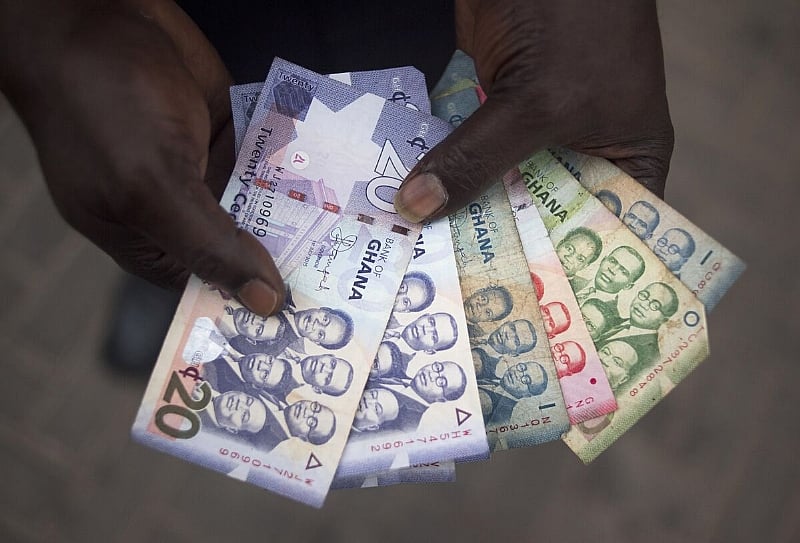The Ghanaian cedi experienced mixed performance against the US dollar on Friday, January 17, 2025, showing a slight depreciation in the buying rate and a minor appreciation in the selling rate compared to the previous day’s averages. Data compiled by Cedirates.com, a prominent source for currency information in Ghana, reveals a buying rate of GHS14.87 and a selling rate of GHS15.28 as of 10:00 am. This indicates a 3 pesewa decrease in the buying rate and a corresponding 3 pesewa increase in the selling rate. These fluctuations reflect the dynamic nature of the foreign exchange market and the various factors influencing currency valuations.
Forex bureaus, which offer another avenue for currency exchange, presented slightly different rates. The cedi’s buying rate at these establishments stood at GHS15.90, while the selling rate reached GHS16.25. This difference in rates between forex bureaus and the figures reported by Cedirates.com highlights the varying pricing strategies employed by different players in the currency exchange market. Factors such as overhead costs, market competition, and specific target audiences can contribute to these discrepancies.
Examining the interbank market provides further insight into the cedi’s performance. Interbank rates, typically used by financial institutions for large-volume transactions, showed a buying rate of GHS14.91 and a selling rate of GHS14.93 against the US dollar. This relatively narrow spread between buying and selling rates in the interbank market is characteristic of wholesale currency trading, where larger transaction volumes often lead to tighter margins.
Beyond the US dollar, the Ghanaian cedi’s performance against other major currencies reveals further complexities in the foreign exchange landscape. The British Pound Sterling averaged a buying rate of GHS17.99 and a selling rate of GHS18.67. Similarly, the Euro traded at a buying rate of GHS15.14 and a selling rate of GHS15.75. These figures underscore the interconnectedness of global currency markets and the influence of various economic and political factors on exchange rates.
The Bank of Ghana’s interbank market provided slightly different rates for these currencies. The selling price of the Pound Sterling was recorded at GHS18.27, while the Euro was selling at GHS15.38. These variations, even within the interbank market, reflect the constant fluctuations and adjustments characteristic of currency trading.
Remittance services, such as LemFi and Afriex, offer alternative channels for transferring money to Ghana from abroad. These platforms provided competitive rates for sending money from the US and the UK. Specifically, LemFi offered a rate of GHS14.80 per US dollar, while Afriex offered a slightly higher rate of GHS14.86 per US dollar. For British Pound transfers, both services offered similar rates, with LemFi at GHS18.14 and Afriex at GHS18.68. For Euro transfers, Afriex offered a slightly higher selling rate of GHS15.48 compared to LemFi’s rate of GHS15.25. These competitive rates underscore the importance of remittance services in facilitating cross-border transactions and their impact on the overall currency exchange landscape.
Finally, for online transactions and subscription payments using Visa and Mastercard, the applicable exchange rates were also provided. Visa offered a rate of GHS15.94 per US dollar, while Mastercard offered a slightly higher rate of GHS16.00. These rates, often used for international online purchases, reflect the specific pricing models adopted by these payment processors, taking into account factors such as transaction fees and currency conversion costs. These diverse data points paint a comprehensive picture of the Ghanaian cedi’s performance in the foreign exchange market on January 17, 2025. The varying rates offered by different institutions and platforms underscore the dynamic nature of currency trading and the importance of comparing options to secure the most favorable exchange rates for specific transactions. From forex bureaus to interbank markets and remittance services, each avenue presents distinct opportunities and challenges for individuals and businesses engaging in international currency exchange.














